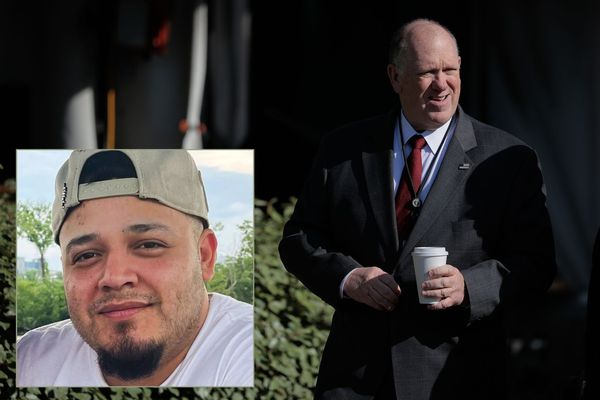
Rishi Sunak has said the UK will not return to the close relationship with China pursued under David Cameron, as the prime minister met business leaders in an effort to drum up foreign investment.
The government on Monday said £29.5bn of new investment had been earmarked for the UK, including projects by the ScottishPower owner, Iberdrola, and BioNTech, the German company that partnered with Pfizer on its Covid vaccine.
Sunak met the heads of multinational firms including Goldman Sachs, Blackstone and JP Morgan at the summit in Hampton Court Palace, south-west London, before a reception at Buckingham Palace with King Charles.
Predictions for UK growth were slashed at last week’s autumn statement, heaping pressure on the government to show signs it is acting to breathe life into an economy hit hard by rampant inflation.
Cameron had courted Chinese investment in the UK as prime minister until 2016 when he resigned after the EU referendum. He returned to frontline politics this month as foreign secretary, leading to questions over whether he would change UK policy towards China after recent years of increased tensions. Cameron hosted a private session with business leaders at the summit.
However, Sunak signalled that he did not intend a change in UK policy. Speaking at the summit, he said: “If David Cameron were here, he would say the China of today is not the China he dealt with a decade ago.”
Sunak said that China, the world’s second-largest economy, was an “indisputable fact of economic life” and there were “no solutions” to major global problems without China. The prime minister made the comments during a panel with Steve Schwarzman, the billionaire chair and co-founder of the investment firm Blackstone.
Hunt and Sunak courted praise from the business leaders, including Jamie Dimon, the chief of JP Morgan, the world’s largest bank, who compared UK policy favourably with the US. Dimon heavily criticised US policy, likening spending on stimulus payments by the US government and bond purchases by the Federal Reserve to “heroin”.
“Well of course you feel pretty good,” Dimon said of the impact on the American economy, adding that he thought recent strong growth might be a “sugar high”. He said inflation could continue in the US, forcing central banks to keep interest rates higher for longer.
Sunak said it was important for the UK to “reorient ourselves to places like the Middle East, Asia Pacific” when looking for investment. In a sign of the government’s desire to attract investment from the Middle East, the chancellor, Jeremy Hunt, also hosted a discussion including Khaldoon Al Mubarak, of Abu Dhabi’s Mubadala Investment Company and chair of Manchester City, and Yasir Al-Rumayyan, the governor of Saudi Arabia’s Public Investment Fund, who said its recent investment in rival football club Newcastle United was among its most notable in terms of impact.
Sunak pitched the UK as a firm partner for allies, saying he wanted to “out-cooperate adversaries”.
The shadow trade and business secretary, Jonathan Reynolds, said: “The past 13 years of Conservative government has been marked by a complete lack of stability, consistency and ambition which has turned potential investors away from Britain.”
The government hailed a string of investments alongside the summit: a £10bn commitment from Australia’s IFM Investors into energy and infrastructure; £7bn from Iberdrola into UK electricity transmission and £5bn from Australia’s Aware Super into energy and housing businesses.
BioNTech, which developed the mRNA Covid jab, is to build a new laboratory in Cambridge, while Microsoft is to plough £2.5bn into AI infrastructure.
It is unclear which of the projects, if any, were a direct result of the investment summit.
Boris Johnson held a similar summit as prime minister, at London’s Science Museum in October 2021, attended by high-profile business figures including the Microsoft co-founder Bill Gates. They were later hosted by the queen at Windsor Castle.
Most of the £9.7bn in investments pledged alongside that summit – including £6bn into offshore windfarms from Iberdrola – is still “in progress”, the government has said.







